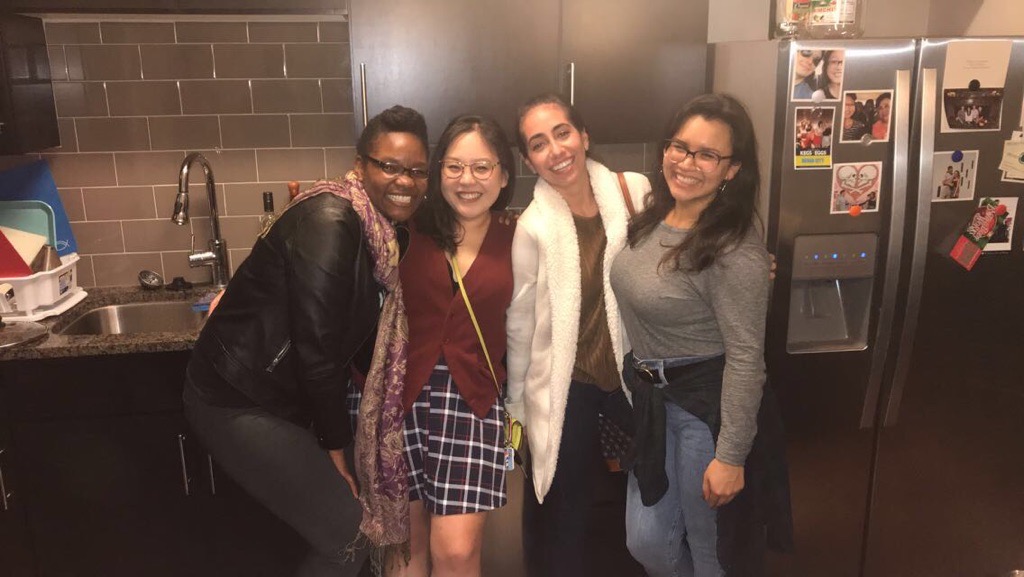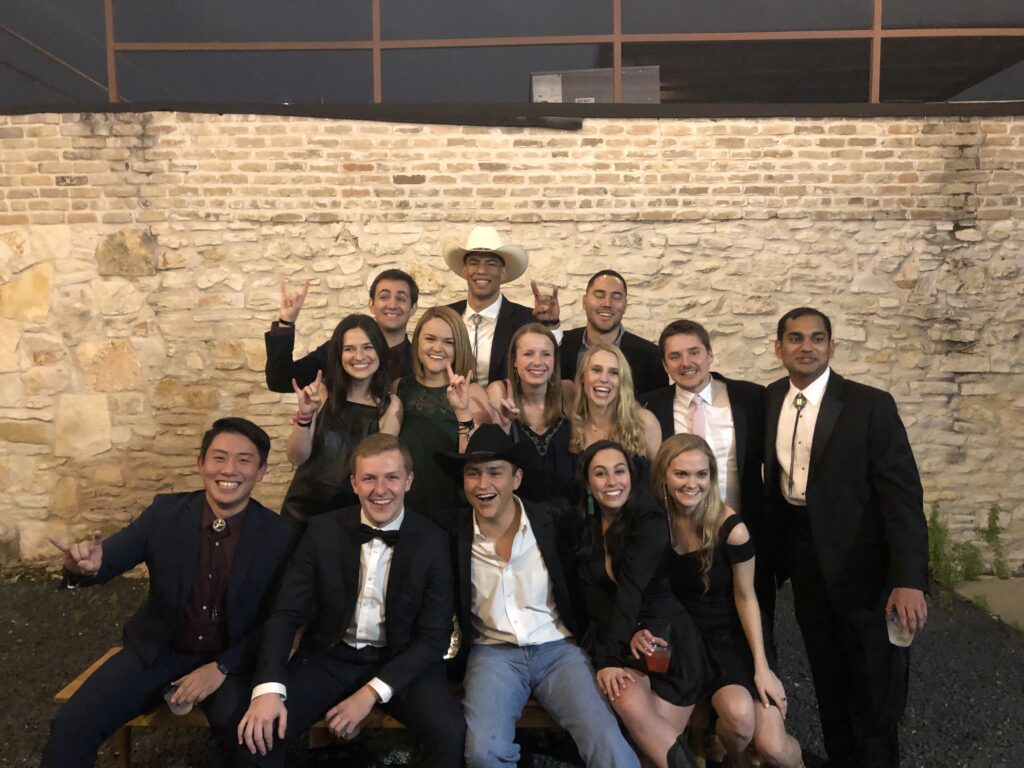 This past Thursday, the new APALSA board put together their first event: a 3L general advice panel regarding life and law school, including navigating through school and firm life. Read on for some answers from our panelists! A big thank you to Logan, our new secretary, for putting together this summary.
This past Thursday, the new APALSA board put together their first event: a 3L general advice panel regarding life and law school, including navigating through school and firm life. Read on for some answers from our panelists! A big thank you to Logan, our new secretary, for putting together this summary.
How did you navigate race and gender at UT Law?
Our panelists indicated that part of tackling race and gender at UT Law is becoming comfortable with carving out your own viewpoint of racial identity. Doing so makes for good practice in becoming a lawyer, as you learn how to self-advocate and express your own conflicting viewpoint in a respectable manner. The lack of Asian litigators was touched on as a particular example. One panelist felt as if people expected him to lean into stereotypes when advocating during mock trial tournaments. As a self-advocate, the panelist was able to push against these stereotypes when needed, but also made peace with leaning into them when they could be used to the panelist’s advantage.
Have any of you encountered personal race-driven stereotypes in a legal aspect? How did you grapple with it?
A large number of our panelists have encountered such stereotypes in the legal field, with the majority of it being outside of the law school setting. A few panelists noted that professors will sometimes mix up their Asian students and call them by the wrong name. If the student feels comfortable, it is helpful to speak up in class and remind the professor what their name is. If not, the student could also speak to the professor in private or in office hours. The majority of time on this topic was spent discussing racism that has been experienced in a work setting. Panelists routinely experienced the stereotype that Asian lawyers are seen primarily as workers instead of colleagues. Two students in particular noted that they were expected to be summers who were interested only in working and not in the social aspect of firm life. In order to combat this, panelists routinely reached out to lawyers outside of their immediate circle to gain more connections in the firm. They would initiate conversations with as many people as possible, and when in a group setting, would help steer the conversation towards something they were comfortable with. All panelists felt that it is important to realize that we have no duty to appease others by fulfilling these stereotypes when faced with them. We all deserve better and can lean on each other for advice, resources, and support.
How do you think law school changed you? How you networked? Your time management skills?
On the broader end, law school is a great time to find people with like-minded interests and backgrounds. Many students are at UT for similar reasons or have similar goals in mind. Connecting with these students can help you be more outgoing and build your network. Additionally, panelists think that law school is a great time to realize that people who have been in your situation want to help you and see you succeed. Connecting with 2Ls, 3Ls, and professors is an underutilized resource for younger students, as all are usually very willing to help younger students navigate whatever new challenges arise.
Also, one panelist felt really strongly that ENEs are very helpful and much different than commercial outlines!
Asian representation on exec or decision-making boards in other groups are low. What can we do to make this better?
Asian representation in the legal field is lacking, and this is especially true in positions of power. The best thing to do is learn how to be your own advocate. A lot of shortcomings 1Ls face is a lack of institutional knowledge of what law school is and should be like. Many of us do not come from backgrounds with lawyers in our households and do not know what to expect when we get to school. APALSA could create resources to inform 1Ls about law school life, the job search for specific practice areas, and handy things to know about UT Law in particular. One panelist emphasized that APALSA could help connect 1Ls with groups at the school that are interest area focused. Many of the student orgs within the law school are focused on particular interest areas, and it is easier for people to connect when they know they have common ground. 2Ls and 3Ls could advocate for their own groups and help connect 1Ls with groups they are familiar with.
Is there anything relevant we should know in regards to the UCLA xenophobia incident that is prevalent at UT?
With regards to the UCLA incident in particular, no. No panelists expressed that they had experienced any blatant racism of the kind recently exhibited by the UCLA professor. However, one panelist provided a word of caution about diversity programs at law firms. While they do provide students of color with opportunities that otherwise could be overlooked and are conscientious efforts at getting a more diverse population within a firm, people inside the firm could look at a diversity program associate in a negative light. Many lawyers will be hesitant to assign work to diversity hires or outright discriminate against diversity program associates because they perceive them as only getting the job because of their ethnicity. These visceral reactions make diversity programs far less valuable than they should be.
Additionally, it may be best to be wary of some members of the administration. Some faculty members are more goal oriented rather than student oriented and will use students to drive the success of their own program. On the other hand, if you know a faculty member to be kind, supportive, or knowledgeable, push other students towards them. For example, Rick Garza was universally praised during the panel as both a kind person and great resource for all students.
 Member Spotlight on… Co-President, Trysten Henderson!
Member Spotlight on… Co-President, Trysten Henderson!




 Member spotlight on… Nathan Simmons, former public interest chair of APALSA and rising 3L!
Member spotlight on… Nathan Simmons, former public interest chair of APALSA and rising 3L! This past Thursday, the new APALSA board put together their first event: a 3L general advice panel regarding life and law school, including navigating through school and firm life. Read on for some answers from our panelists! A big thank you to Logan, our new secretary, for putting together this summary.
This past Thursday, the new APALSA board put together their first event: a 3L general advice panel regarding life and law school, including navigating through school and firm life. Read on for some answers from our panelists! A big thank you to Logan, our new secretary, for putting together this summary.


